About us
The Institut de la Vision is one of the leading centre of research dedicated entirely to vision. International in scope, innovative in its design and organisation, it brings together multidisciplinary teams of scientists.
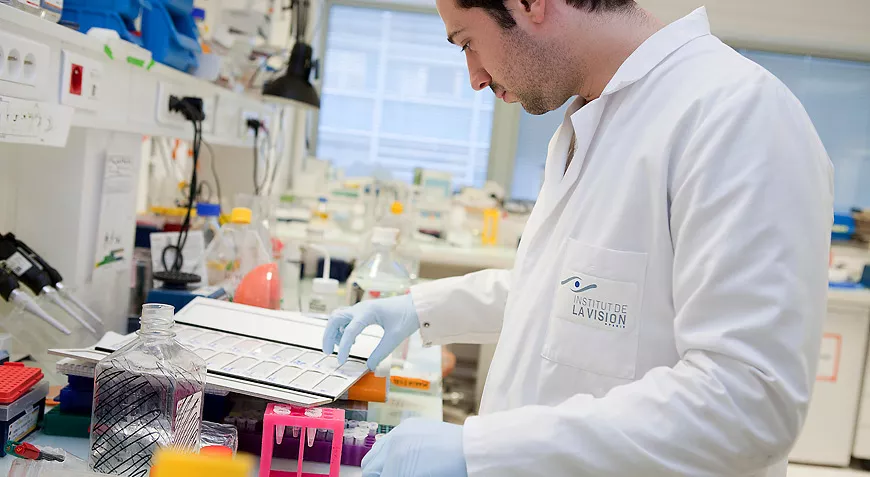
An international research centre
Founded by Professor José-Alain Sahel, the Institut de la Vision is an international research centre dedicated entirely to research into eye and vision diseases. It brings together researchers, doctors, patients and industry on the same site to discover innovative treatments for eye diseases and improve the quality of life of visually impaired people.
It is being built on a site that brings together l’Hôpital national de la vision des 15-20 and its Clinical Investigation Centre (CIC), as well as the Centre for Rare Retinal Diseases. Designed as a place where people can come together and exchange ideas, the Institut de la Vision enables ideas to be shared, new questions to emerge and the transfer of research findings to patient care to be accelerated. Its innovative organisation, based around hospital patients, enables new therapeutic or technological solutions to be discovered, tested and developed in order to prevent eye diseases or limit their effects.
More than 300 researchers are working in the 5 research departments of the Institut de la Vision: developmental biology of the visual system, genetics, visual information processing, pathophysiology and therapeutics, photonics.
All the Institut de la Vision's activities and projects are coordinated by the Fondation Voir & Entendre, in conjunction with its three supervisory bodies: Sorbonne University, Inserm and the CNRS.
The HCERES 2024 report praised the Institut de la Vision for its leading role in scientific and medical research, confirming its status as one of the world's leading research centers.
The Institut de la Vision is also supported by the French Ministry of Higher Education and Research, the European Commission, the French National Research Agency (ANR) (Laboratory of Excellence, Carnot Institute) and numerous sponsors and associations.
In 2023, it was evaluated by an international commission of experts (HCERES) as a world-leading research centre, which can rightly be considered the leading vision research centre in the world.
Applied research is nourished by fundamental research and conversely
«We are convinced that applied research is nourished by fundamental research and, conversely, fundamental research finds questions in the challenges posed by medicine. Our ambition is to bring together at the Institut de la Vision all the talent needed to understand vision and the anomalies produced by pathologies, with the aim of proposing innovative therapies.
This is why we have broken down disciplinary barriers, because technological innovation is the driving force behind scientific and medical discoveries. All our preclinical work has been carried out by multidisciplinary teams, including clinicians, biologists, physicists, mathematicians and engineers. Collectively, we are proud to have provided proof of concept for these therapies and to have accelerated their technology transfer through the creation of start-up companies. These start-ups have worked hard to demonstrate the reliability of our products and the absence of risks for patients before launching clinical trials.»
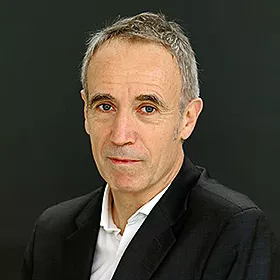
Serge Picaud,
Director of the Institut de la Vision
Our mission
The Institut de la Vision is tackling both the major public health issues in ophthalmology and rarer diseases in order to bring hope to all those affected by visual impairment:
- The most common vision diseases: AMD, glaucoma, myopia, diabetic retinopathy, corneal and ocular surface disease, dry and painful eyes, venous occlusions, uveitis, etc.
- Rare ocular diseases: Pigmentary retinopathies, Usher syndrome, Stargardt disease, optic neuropathies.
- Innovative therapeutic strategies: Artificial retina and gene, cell, optogenetic and sonogenetic therapies.
- Cutting-edge diagnostic tools: Very high resolution imaging
- Technologies to help the disabled: Studies in an artificial street, on a driving simulator, etc. to restore autonomy and mobility in the daily activities of the visually impaired and senior citizens.
We innovate by putting the patient at the heart of our research
Our strength: translational research
From research to patient care: Translational research lies between basic research, which aims to understand the mechanisms of the human visual system, and clinical research, which aims to assess the effectiveness and tolerability of new treatments in patients.
It ensures the continuum between research and care, and enables patients to benefit more rapidly from diagnostic and therapeutic innovations. Translational research therefore involves close collaboration between researchers and clinicians. This is why researchers at the Institut de la Vision work on a daily basis with doctors at the Clinical Investigation Centre at the Hôpital national des 15-20, as well as with partner hospitals, in particular the Fondation Ophtalmologique A. de Rothschild, the AP-HP (Lariboisière and Pitié-Salpêtrière hospitals) and the Centre Hospitalier Intercommunal de Créteil.
But translational research is not a one-way street. It enables knowledge to be transferred in both directions: from basic research to patient application, and from patient observations to basic research. It therefore involves:
- either taking a basic research discovery further in order to develop clinical applications,
- or exploring new biological pathways based on clinical observations.
From bench to bed
Our 3 labels
University Hospital Institute (IHU)
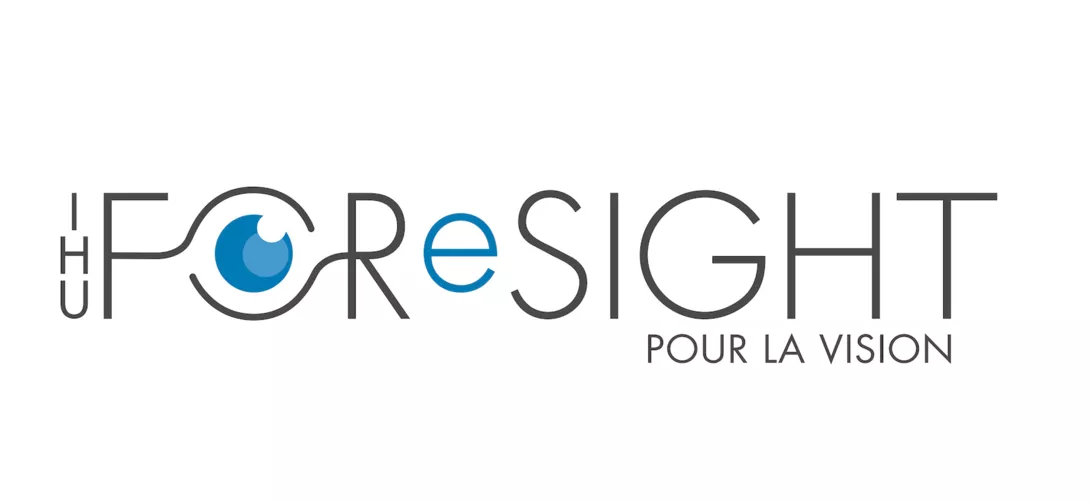
In 2010, the Ministry of Higher Education and Research and the Ministry of Health launched a call for projects for the creation of University Hospital Institutes (IHU) as part of the future investment programme. This funding programme supports excellence and innovation in the field of healthcare by encouraging the creation of emblematic centres for care and research. The FOReSIGHT project around l’Hôpital National des 15-20 and the Institut de la Vision was awarded the IHU label in 2017.
Institut Carnot Voir & Entendre
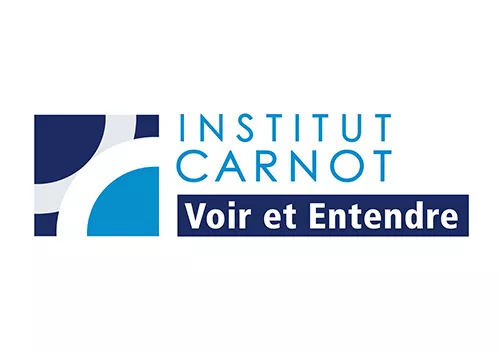
Created in 2006, the Carnot label aims to develop partnership research, i.e. research carried out by public laboratories in partnership with socio-economic players, mainly companies (from SMEs to large groups), in response to their needs.
The Institut Carnot Voir & Entendre brings together the Institut de la Vision, the Institut Pasteur's Genetics and Physiology of Hearing research unit and the CIC of the 15-20 hospital. It is one of the leading international centres for neurosensory research. Its aim is to accelerate innovation in healthcare products and high technology, by providing solutions to the unmet needs of people suffering from pathologies and disabilities affecting the visual and auditory systems. It has been awarded the Carnot label for a renewable period of five years.
Fondation Fighting Blindness
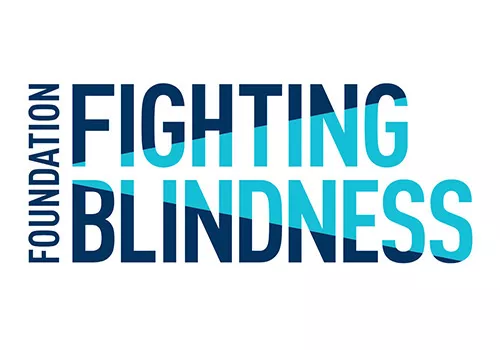
To find out more about the Fondation Fighting Blindness
